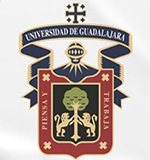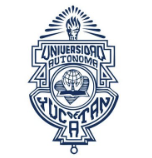Introduction to the Autonomous University of Yucatan:
Introduction: Located in the state of Yucatan in southern Mexico, it is the largest institution of higher education in the state and plays an important role in regional education, offering multidisciplinary undergraduate, master's and doctoral programs.
Overview: The school has 6 campuses, 5 of which are in Merida, the capital of the state, and 1 multidisciplinary campus in Tizimin. The school has about 17,379 students, including 10,538 undergraduates and 1,339 graduate students, with international students accounting for about 1%. The total number of faculty is 925, including 710 tenured professors and 215 scholarship teachers. It offers 45 bachelor's degree, 23 master's degree and 8 doctoral degree programs, covering social sciences, humanities and economics, science and engineering, health sciences, bio-agriculture and architecture, habitats, art and design, etc.
History: Its history dates back to 1611, when a royal decree from the Spanish Empire allowed the creation of the San Francisco Javier College in Merida. In 1922, then-Governor Felipe Carrillo Puerto founded it as the Southeastern National University, teaching medicine, engineering, law and art. In 1938, the university was reorganized and renamed the University of Yucatán, and gained autonomy in 1984.
Establishment: 1922.
School Strength: It is a member of organizations such as the National Association of Universities and Higher Education Institutions (ANUIES) and actively carries out international exchanges and cooperation. The school's Confucius Institute was established in 2007 and is one of the two HSK test centers in Mexico, promoting the spread of Chinese language and culture in the local area. It has certain research strengths in the fields of humanities, social sciences, and natural sciences, and has trained many outstanding graduates, such as historian Silvio Zavala, politicians Rolando Zapata Bello and Angelica Araujo Lara.
Nature of the institution: Public autonomous university, funded by the government, aims to train talents for society and promote regional education, culture and economic development.
Educational philosophy: Committed to humanistic education, cultivating graduates who can contribute to human development and meet local, national and global challenges.
Key laboratories and disciplines: No outstanding key laboratories have been identified. Key disciplines in life sciences include agriculture and forestry, sports science, veterinary medicine, and biological sciences; in physical sciences, they include chemistry, geology, environmental science, earth and ocean science, physics, astronomy, mathematics and statistics.
Faculty: The school has 15 colleges, offering 21 undergraduate and 26 postgraduate courses ranging from skeletal anthropology to habitat design.
Ranking: After 1401 in the 2025 QS World University Rankings, 151-160 in the Latin America and Caribbean rankings, and after 1501 in the Times World University Rankings.
Fees: There is no clear information on tuition fees for international students, but as a public university, it usually charges lower fees for domestic students. The school has a scholarship program to help students reduce their financial burden.
Campus environment: The main campus is located in Merida, which has an international airport and convenient transportation. The campus is well-equipped with libraries, sports facilities, etc., providing students with good learning and living conditions. The school is famous for its regular folk ballet, and its sports mascot is a jaguar.
-

National Autonomous University of Mexico
-

Anahuac University of North Mexico
-

Universidad ETAC
-

Universidad Autonoma de Guadalajara
-

Meritorious Autonomous University of Puebla
-

Technological University of Tulancingo
-

Technological University of Huejotzingo
-

Autonomous University of Sinaloa
-

Metropolitan Autonomous University
-

University of Guadalajara
-

Mesoamerican University
-

Istmo University
-

Mariano Galvez University of Guatemala
-

Regional University of Guatemala
-

Galileo University
-

Francisco Marroquín University
-

Rafael Landívar University
-

University of the Valley of Guatemala
-

University of San Carlos of Guatemala
-

Technological Institute of Tlaxcala Plateau
-

Golfo University
-

Technological University of South Sonora
-

Technological University of Huejotzingo
-

Tizimín Institute of Technology
-

Chilpancingo Institute of Technology

